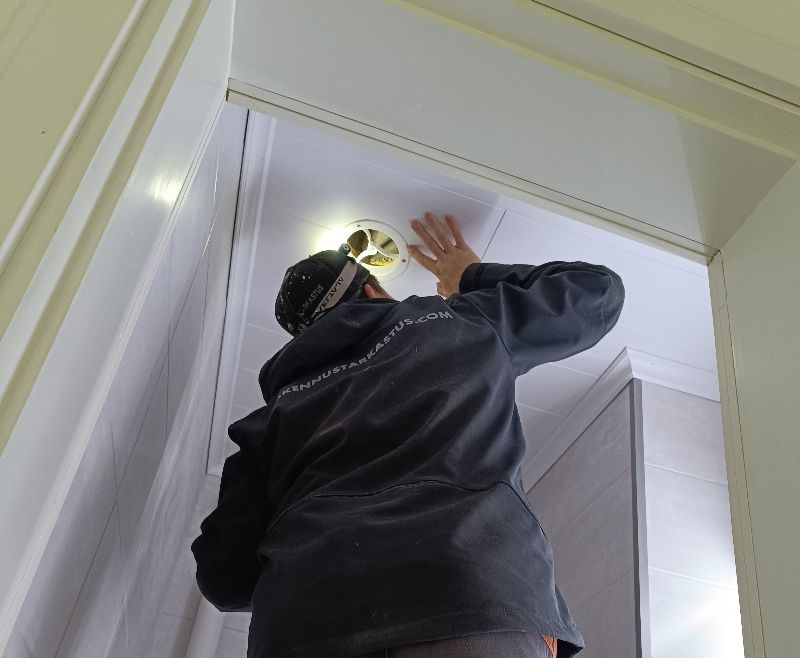Condition inspector, construction engineer
"The profession requires competence and understanding of the basics of construction engineering. For example, you must have an understanding of the movement and effects of moisture in building structures. You must also know how to interpret and use the tools and measuring devices used in the work. On the other hand, you also learn a lot by doing: you must be ready to learn a lot of new things."

- Aukusti Kittilä
- Employee in the company Rakennustarkastus Ratar Oy.
- Graduated as a construction engineer from Metropolia University of Applied Sciences.
- Four years of work experience in the field.
Briefly explain what you do for a living.
I mainly do condition inspections and humidity measurements related to home sales. We also conduct water damage surveys and monitoring and inspection tasks for housing companies.
How have you ended up in the profession of your choice?
After my studies, I worked at construction sites for a couple of years. Then an acquaintance of mine talked me into working as a condition inspector.
Describe your typical working day or week.
We always try to agree in advance on what we do during the working day. Typically, my working day starts at the office. There I get the details of the inspection site for the day. After reading the details, I move to the inspection site and carry out the required measures. After the inspection, I usually go back to the office where I write reports on previous sites.
On average, I am at an inspection site three or four days a week. On other days, we do site reporting at the office and plan the scheduling of the coming weeks. Sometimes you need to be prepared to change your day’s schedule because of sites that require urgent action, for example. The job description varies quite a lot from day to day and from week to week.
What kind of work environment or working hours do you have?
The work environment changes as the inspection sites change: we inspect industrial properties, housing companies and single-family houses. Sometimes you work outdoors, sometimes indoors.
Working hours are somewhat varying. What’s important is that the agreed tasks are completed according to the schedule. Every once in a while, for example, in emergency situations, you must be prepared to be flexible with agreed working hours.
What kind of competence or qualities are required in the profession?
The profession requires competence and understanding of the basics of construction engineering. For example, you must have an understanding of the movement and effects of moisture in building structures. You must also know how to interpret and use the tools and measuring devices used in the work. On the other hand, you also learn a lot by doing: you must be ready to learn a lot of new things.
Of qualities, I’d like to highlight curiosity and enthusiasm for work tasks. They help in coping at work. The work also requires a service-minded attitude and accuracy. I would say that the profession reveals a rather diverse range of qualities in you.
What is the best thing about your profession?
The variability and diversity of inspection sites is refreshing: days and weeks are not copies of each other. Meeting new people is also nice, and every time I help one of our customers, I feel that I do something meaningful.
What are the downsides of the profession or what seems challenging?
Informing the customer of problems that may arise during an inspection may sometimes seem challenging. I’d say that nobody wants to tell or hear bad news.
What would you tell a person considering the profession of a condition inspector?
The job title may sound like the job title of a slightly more experienced person working in the construction sector, but I recommend openness and open-mindedness. At least for me, the work has been surprisingly diverse, and my image of the profession has changed a lot from what it was before working as a condition inspector.
How do you see the future of your profession?
I believe that there will also be demand for the work of condition inspectors in the future. As long as flawless buildings cannot be built or all surprises cannot be avoided, there is a need for this profession. The future prospects for condition inspectors specialising in home sales are good, as banks increasingly want to know the condition of their potential lending targets before making a lending decision.
